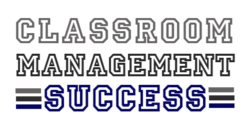Contrary to popular belief, discipline is not punishment, but guidance. Discipline means to teach anyone how to properly behave or deal with something. Discipline is leading by example, you cannot expect a child or a student to listen to you if they see that your actions contradict what you’re teaching them. Leading by example instills a sense of self-respect to you and to them.
There are keys to effective discipline. The list below are just some tips and guidelines on how you can set effective discipline in the classroom.
- Set reasonable expectations and communicate them
Communicate your expectations with your students. Tell them on the first day how and why they should behave in a certain matter when inside the classroom.
Run down your rules, and why those rules are established. For example, “Don’t run inside the classroom because you might accidentally injure yourself or your classmate.”
Make them understand why there are rules and why they should be followed.
- Be consistent
Discipline will only be established if you are being consistent–with your rules and
consequences. Reminding your students about the rules from time to time would not hurt your relationship with them.
- Compromise and cooperate whenever possible
Students are not your friends. Treat your students as if they are leveled with you. BUT of course you must establish that you are the leader of the classroom, and that they should still respect you.
Allow opportunities where children can work with you. You can compromise with them. If what they want are reasonable and nobody will be harmed and nothing will be disrupted, allow them to do what they want. They’re kids anyway.
- Offer choices
If your students want something, you can offer choices so they will learn the value of decision making. Decision making can teach them that all their choices have different outcomes and consequences. For example, when they want to play tag in the classroom, you can say, “Are you sure you want to play tag in the classroom or outside in the playground?”
- Ground your relationship in honesty
Honesty is the best policy. We’ve all heard this. Be honest when you’re the one who’s wrong so your students will also be honest with you. You should also try to understand where they’re coming from when they did something that wasn’t so nice and they lied about it.
You can also give them incentives or rewards when they are being honest.
- Make the punishment fit the crime
Always match the punishment with the broken rule. Explain to them why you’re giving them that specific punishment for their bad behavior. Never give the punishment without an explanation because sometimes, they wouldn’t even know what they did wrong!
For example. if they destroyed a wall decor because they’re being rowdy inside the classroom, explain what happened–how you felt (you put in time and effort to make that decor), and then you can give them a punishment where you make them help you make a new decor, if they can’t do it themselves yet.
- Give respect, get respect
Respect is should always be mutual. If you respect others, they will respect you. Same goes to your students. If you show them respect, they will respect and love you.
Treat your students as a thinking individual, always taking their opinions to mind. Include their opinions so that students will feel important and they will build self-esteem because they know you listen to them, you try to understand where they’re coming from.
Explain, so that they understand. Respect sets a platform in which students will be able to make right and simple decisions at an early age.
- Make sure discipline begins and ends in love
I’ve heard this from a veteran teacher: Discipline without love is abuse. Always tell your students you love and care for them.
At the end of the day, you’re their teacher and they look up to you. Don’t break their trust.
Don’t let them be afraid to go to school because of you. Discipline doesn’t mean that you have to punish. Discipline is guidance, and there is a lot of respect in discipline.
What are your ways to effective discipline?


Leave a Reply